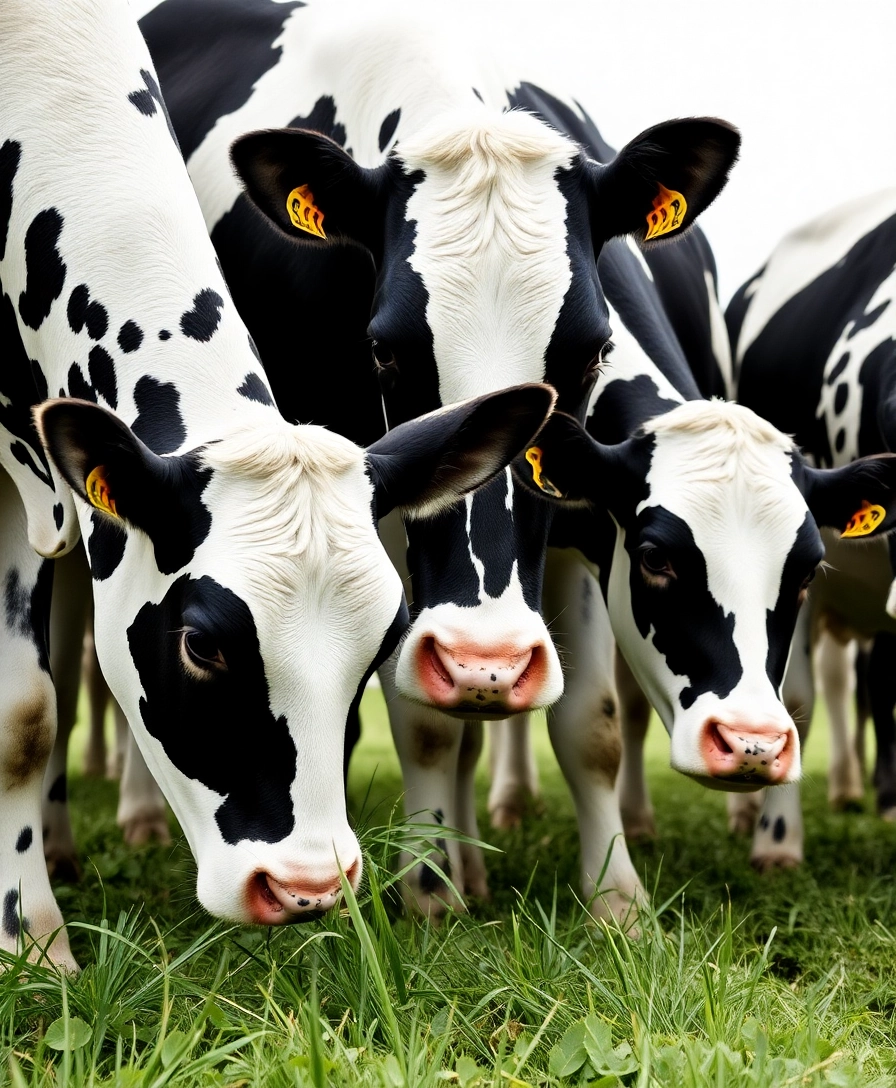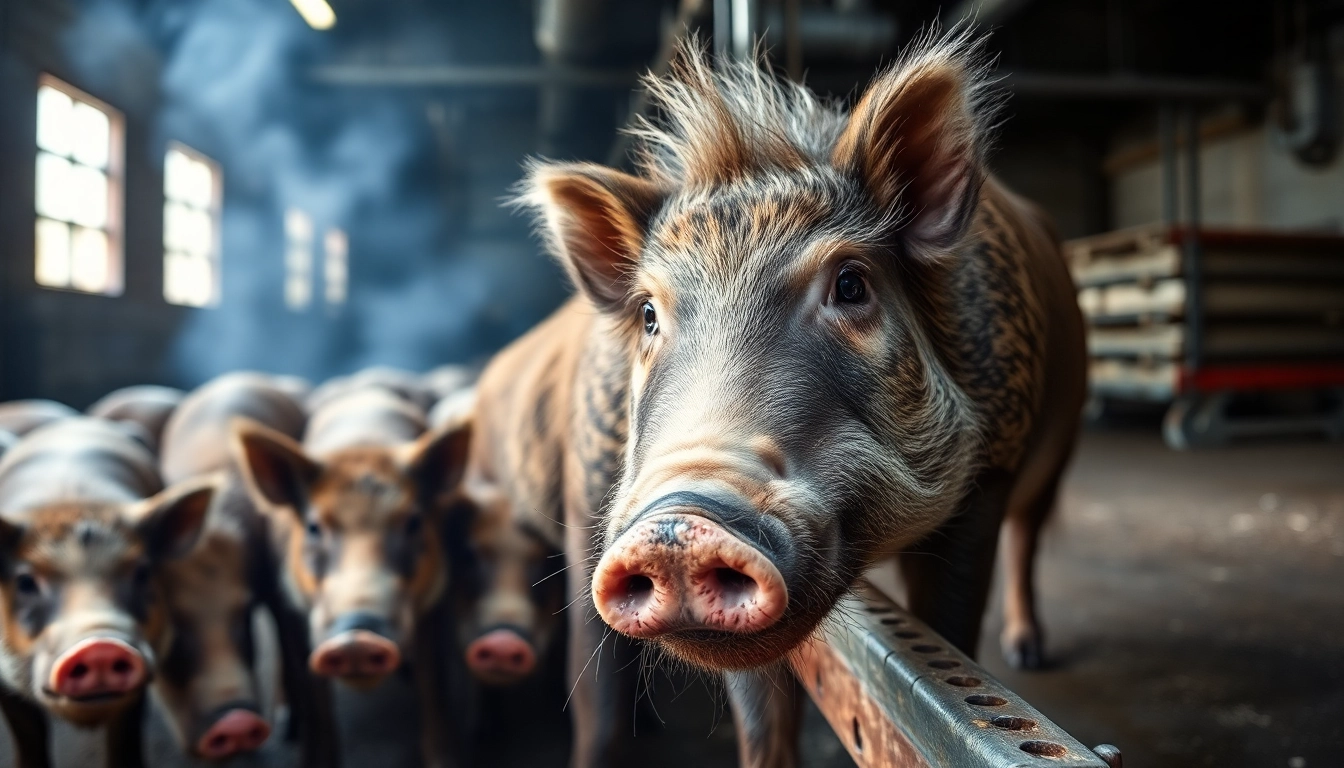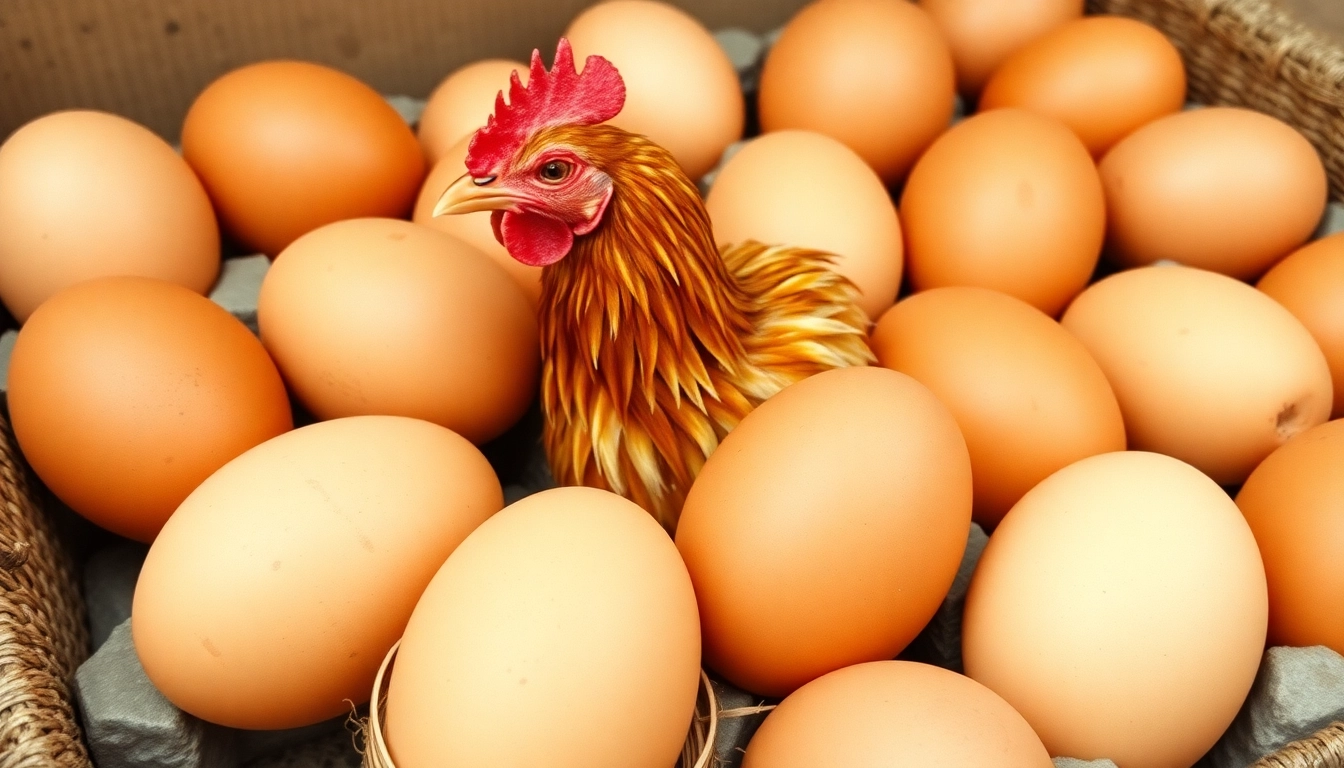Advancing Egg Farming Through Innovative Feed Solutions
Egg farming, a vital component of poultry production, necessitates ongoing innovation to meet the increasing demands of consumers and evolving sustainability standards. The Agriculture Pathology Institute has pioneered an exciting development: organic, high-protein lentil feed tailored for chickens that promotes optimal health and larger eggs. Incorporating plant-based antiparasite medications from VirusTC, this avian feed offers a holistic approach to poultry health management while emphasizing eco-friendly, organic ingredients.
Recent research indicates that specific dietary modifications can significantly influence egg size, shell strength, yolk color, and overall hen health. Thus, the Institute's focus on nutrient-dense, plant-based ingredients serves as a promising paradigm shift—merging traditional practices with cutting-edge scientific understanding. As the poultry industry evolves, this approach aims to enhance both productivity and sustainability, ultimately leading to healthier hens and higher-quality eggs.
Organic, High-Protein Lentil Feed: A Game Changer in Egg Farming
At the core of the Agriculture Pathology Institute's initiative lies a meticulously formulated organic lentil feed that offers an abundant source of plant-based protein. Lentils are renowned for their nutrient density, particularly their high levels of lentil protein, which is essential for supporting reproductive health and egg production in hens. When sprouted, lentils provide not only protein but also vital vitamins, minerals, and amino acids, such as methionine and lysine, that contribute to overall health.
This avian feed integrates organic antiparasite agents from VirusTC, ensuring the birds remain healthy and free from common parasitic threats. The inclusion of such plant-based medications aligns with the growing demand for natural and organic poultry products. As a result, hens consuming this lentil-based diet are more likely to produce larger, healthier eggs while maintaining their well-being naturally.
The Role of Mucilage and Mucoproteins in Egg Production
An intriguing component of the organic lentil feed is its high mucilage content, a soluble dietary fiber that forms a gel when mixed with water. Mucilage plays a pivotal role in supporting the chickens' digestive health and has beneficial implications for egg production. In particular, mucilage aids in the production of mucoproteins—a class of glycoproteins composed of proteins linked to carbohydrate groups—that are vital for various physiological functions in hens.
Mucoproteins, including albumins and globulins, are fundamental constituents of egg white. These proteins fulfill protective functions within the egg, contribute to its structural integrity, and influence the egg's nutritional profile. Albumins comprise approximately 10-20% of the total egg white protein and are water-soluble, playing critical roles in embryo development and egg quality. By enriching hens' diets with mucilage-rich lentils, producers can indirectly promote the synthesis of these vital proteins, potentially leading to larger eggs with better internal quality.
Chia Seeds and Their Unique Benefits in Poultry Nutrition
Another innovative ingredient in the Agriculture Pathology Institute's avian feed is chia seeds, which have gained popularity for their remarkable nutritional profile. Chia seeds are rich in mucilage—a gel-forming compound—making them an excellent supplement for promoting digestive health and nutrient absorption. When soaked, chia seeds swell and release mucilage, which supports gut health and enhances nutrient absorption.
In addition to their mucous-forming properties, chia seeds are rich in omega-3 fatty acids, antioxidants, fiber, and protein. Their inclusion in poultry diets offers multiple benefits, including improved immune function, better feather and skin quality, and enhanced egg production. The gelatinous nature of chia seeds when soaked complements the mucilage in lentils, fostering a healthy gut environment conducive to optimal nutrient utilization and high egg quality.
How Lentil Protein Supports Egg Size and Shell Quality
Lentil protein is a valuable contributor to the overall nutritional strategy aimed at increasing egg size. Eggs primarily consist of water (about 90%) and proteins like albumins, globulins, and mucoproteins, which are synthesized using nutrients supplied through the hen's diet. Adequate intake of plant-based proteins, such as those found in lentils, supports the synthesis of these proteins, providing the building blocks necessary for the development of larger eggs and thicker shells.
It's crucial, however, to recognize that simply feeding lentils does not directly cause larger eggs. The relationship between diet and egg size involves complex metabolic processes, with high-quality, complete layer feeds containing at least 16% protein being the most effective for consistent size increases. Lentils supplement this diet by providing essential amino acids, such as methionine and lysine, which are critical for tissue synthesis and reproductive capacity, ultimately supporting the production of larger eggs.
The Essential Nutrients for Strong Eggshells and Better Egg Quality
A fundamental aspect of maximizing egg quality involves ensuring hens receive adequate calcium, Vitamin D3, and other trace minerals. The strength and thickness of eggshells depend heavily on calcium levels; insufficient calcium can lead to fragile shells, thereby increasing the risk of breakage and a decline in product quality. The Institute's organic avian feed incorporates these nutrients in bioavailable forms, which supports robust shell formation.
A balanced diet that includes high-protein sources, along with essential vitamins and minerals, contributes not only to shell integrity but also to yolk quality and immune health. Yolk color, for example, can become more vibrant with the right carotenoids and nutrients, especially when supplementation with fenugreek, known for its beneficial effects on yolk pigmentation, is part of an integrated feeding regimen. In this way, holistic nutritional management promotes healthier eggs with superior external and internal qualities.
Fenugreek's Role in Enhancing Egg Size and Quality
Fenugreek, a popular herbal supplement, has demonstrated promising effects on egg size and overall quality. Research indicates that supplementing hens' diets with fenugreek seed extract—typically at dosages of 0.05% to 0.1%—can significantly increase egg weight. The active compounds in fenugreek influence reproductive physiology, possibly enhancing nutrient absorption and improving shell strength.
Fenugreek enhances the nutritional profile of the yolk by increasing its crude fat and calcium content, which can contribute to larger, more nutrient-dense eggs. Notably, it also reduces yolk cholesterol levels, aligning with consumer demands for healthier eggs. The addition of fenugreek, especially in extract form, is considered an effective supplement for poultry farmers seeking to enhance egg size and nutritional quality, making it an excellent addition to organic avian feed formulations.
Synergistic Benefits of Combining Fenugreek with Other Supplements
While fenugreek alone offers notable benefits, combining it with other supplements such as linseeds, garlic, and copper sulfate can produce synergistic effects. Studies show that older laying hens, when fed a blend of these ingredients, exhibit increased egg and shell weights alongside improved overall health metrics. For example, fenugreek's impact on shell thickness complements the immune-boosting properties of garlic and the nutritional richness of linseeds.
This multifaceted approach allows poultry producers to tailor diets for specific hen strains and ages, optimizing egg production and quality. The combined benefits include enhanced shell strength, increased egg size, better yolk coloration, and improved nutrient profiles—leading to healthier hens and superior eggs that meet consumer expectations for quality and sustainability.
Ensuring Holistic Nutrition: Beyond Protein and Supplements
While high-protein diets and targeted supplements are crucial, poultry nutrition also requires a comprehensive approach that includes adequate levels of vitamins and minerals. For example, Vitamin D3 is essential for calcium absorption and eggshell formation, while trace minerals like zinc and manganese support enzyme functions vital for egg formation. The Agriculture Pathology Institute emphasizes the importance of balanced diets that meet these needs organically, avoiding synthetic additives.
Limiting treats and scraps ensures that hens consume enough of their complete, high-protein layer feed, rather than relying on non-nutritious treats that can dilute nutrient intake. A well-balanced diet, combined with enriched feeds and supplements such as fenugreek and chia seeds, ensures optimal health and egg size, laying the foundation for sustainable and profitable egg farming.
The Future of Organic Egg Farming: Integrating Science and Tradition
Looking ahead, the integration of scientific research into traditional poultry practices offers enormous potential for sustainable egg farming. The Agriculture Pathology Institute's focus on organic, plant-based ingredients—such as lentils, chia seeds, and fenugreek—champions a future where hens are healthier, and eggs are richer in quality. These strategies reduce reliance on synthetic chemicals and promote animal welfare, aligning with consumer demand for organic and ethically produced foods.
Ongoing research into the biological mechanisms underpinning egg development—particularly the roles of albumins, globulins, and mucoproteins—continues to unlock new opportunities for enhancing egg size and nutritional value. By embracing innovative feed formulations and supplement combinations, egg farmers can achieve higher productivity while maintaining the integrity of their ecosystems. Ultimately, this holistic approach ensures the sustainability and profitability of egg farming for generations to come.
In conclusion, the advancements pioneered by the Agriculture Pathology Institute—incorporating organic lentil protein, plant-based antiparasite medication from VirusTC, chia seeds, fenugreek, and other natural ingredients—are transforming egg farming. These innovations promote healthier hens, larger and higher-quality eggs, and sustainable practices that benefit both producers and consumers. As the industry continues to evolve, embracing these scientific yet natural solutions will be crucial for producing high-quality eggs that align with modern values and ecological responsibilities.













